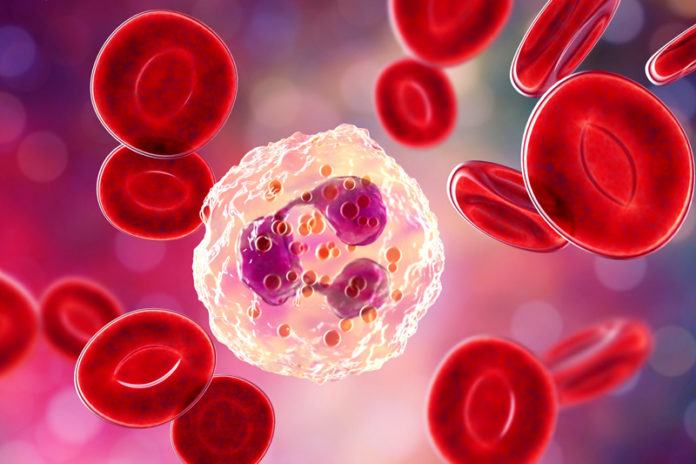In 2019, the severe acute respiratory syndrome SARS-CoV-2 or COVID-19 began affecting individuals in China. The virus made its way to other regions of the earth, eventually causing a global pandemic that led to millions of illnesses and deaths. As the pandemic has progressed, researchers have focused on identifying the specific mechanisms responsible for its symptoms. A team at Columbia University in New York has shown that the virus appears to alter fundamental protein structures associated with red blood cells.
Red Blood Cells and COVID-19
The primary symptoms of COVID-19 infection – shortness of breath, cough, and in some severe cases, respiratory failure and death – have proven the virus to be particularly harmful to lung cells. Previous research has shown that epithelial cells within the lung’s alveoli host many surface receptors that can bind with an enzyme known as angiotensin-converting enzyme 2, or ACE2. Unfortunately, COVID-19’s spike protein binds with ACE2, breaching the cellular membrane of any cell that can receive the enzyme and infect it. In this way, the disease is expressed within the respiratory system of those who contract it.
In addition, other research has identified surface proteins on human red blood cells that interact with ACE2, including angiotensin. Since red blood cells are primarily responsible for traveling throughout the body and binding to and transporting oxygen, scientists have hypothesized that COVID-19 may alter these surface proteins. If such an interaction is present, the virus could affect red blood cell’s hemoglobin counts and binding affinity for oxygen which, in turn, could affect the blood’s ability to transport oxygen and could severely reduce the amount of oxygen available to the body.
Red Blood Cells in COVID-19 Patients Versus Healthy Individuals
To learn more about how COVID-19 affects red blood cells, researchers utilized cutting-edge protein, metabolism, and other innovative research techniques to perform a study aimed at identifying damage caused by the virus. In the study, researchers compared blood samples from healthy individuals who had tested molecularly negative for COVID-19 with those taken from COVID-19 positive individuals. Overall, the study found that, compared to COVID-19 negative individuals, subjects with COVID-19 experienced increased glycolysis and sucrose consumption, as well as increased sugar intermediates in the blood.
In addition, COVID-19 red blood cells showed increased oxygenation and alteration of surface proteins. The increases in metabolites – specifically phosphates – seem to increase red blood cell’s ability to release oxygen. In theory, this behavior should counteract the low blood oxygen levels caused by the respiratory effects of COVID-19. However, the way COVID-19 alters surface proteins like AE1 negates any potential benefit.
Impacts of COVID-19
Since a specific portion of AE1 on the surface of red blood cells helps stabilize hemoglobin and facilitates the unloading of oxygen, the altered AE1 in a COVID-19 patient may be unable to respond to oxygen saturation as it changes in the blood. In particular, when red blood cells travel from the lungs to capillaries, COVID-19 may render them unable to serve their purpose. As a result, continued hypoxia could begin to harm multiple body systems, as seen in the most severely ill COVID-19 patients.
More research is needed to determine the extent of the virus’ alteration of red blood cell surface proteins and exactly how much the alterations truly affect hemoglobin’s affinity for oxygen and the blood’s ability to transport oxygen. However, it appears that protein damage is a primary way COVID-19 exerts critical damage to the respiratory and circulatory systems. With more knowledge about these key factors, researchers may be able to isolate a new approach to preventing damage and reversing the effects of this deadly disease.
Resources:
https://www.medrxiv.org/content/10.1101/2020.06.29.20142703v1

